The Motorcycle Portraits is a project by photographer/filmmaker David Goldman, who travels the world making documentaries, and takes time out to interview interesting people in the motorcycle scene, wherever he might be. The result is a single exemplary photo, a geolocation of his subject, and a transcribed interview. The audio of his interviews can be found on The Motorcycle Portraits website.
The following Motorcycle Portraits session is with J Shia, whose work and motorcycle customization shop Madhouse Motors has been featured everywhere from BikeExif to The New York Times. Her style is distinctive, a bricolage approach mixing rustic parts between brands or even functions. She’s also an icon of gender queer folks in the motorcycle community and beyond, sharing plain-spoken posts about raising her son with her girlfriend, the bonds they share, her struggles as a business person, and her mixed Lebanese/Syrian heritage. J Shia is a true individual, and unique in many ways in the contemporary custom motorcycle scene. David Goldman interviewed her for a Motorcycle Portrait:
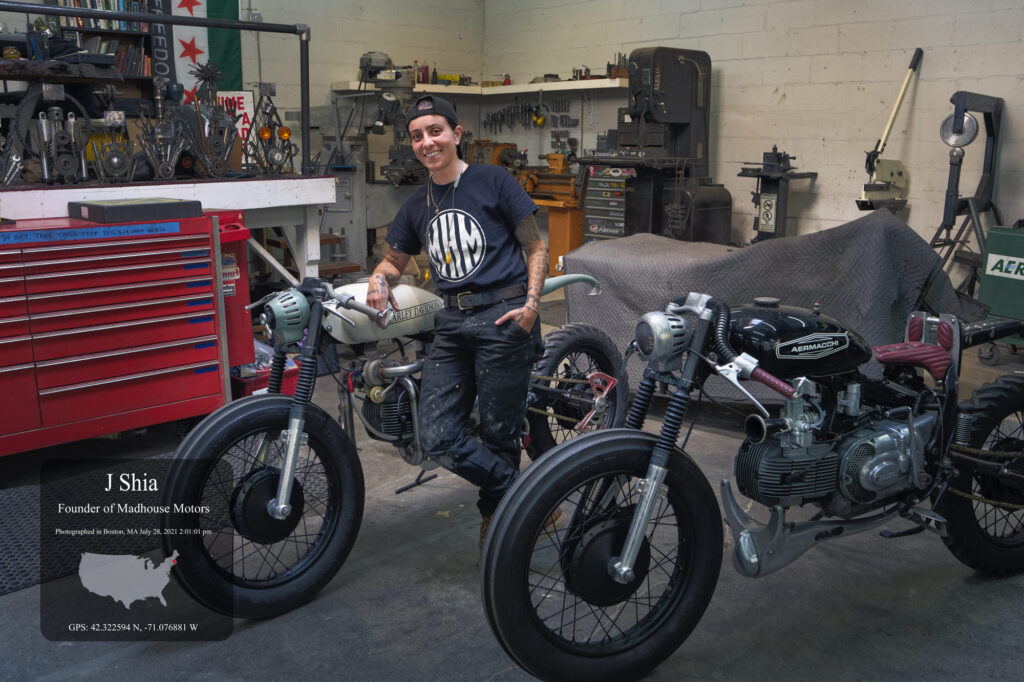
Tell us about yourself:
My name is J Shia. I own Madhouse Motors in Boston Mass where we specialize in antique restoration, custom builds general maintenance and fabrication. We’ve been in business for 11 years.
How did you first get interested in motorcycles:
It’s funny because I don’t really have a first experience or first memory with motorcycles because they were always around, I grew up with them being as normalized as having a bicycle or a car, around the house or in the yard. So I was I was a kid, motorcycles were just an item that was scattered about in my family’s house, where at one point, my father went on a vintage messed up old motorcycle collecting spree and had around 70 motorcycles scattered throughout the backyard. And so growing up they were always there. It was just a very normal thing for me to be around.
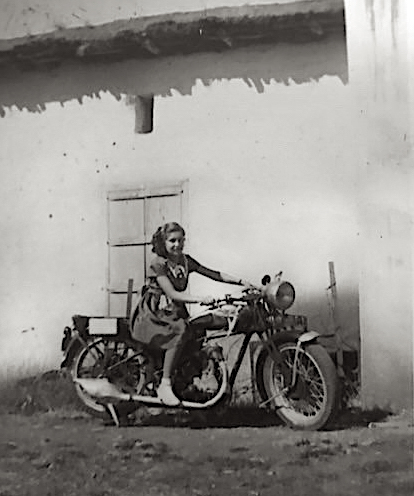
Tell me a story that could not have happened without motorcycles in your life:
I don’t know if I have a good story about motorcycles, specifically down to one moment or one story, but motorcycles in general, are what I credit for having met and created a lot of my friendships here at the shop. And so the stories that have kind of revolved around that, in the people I’ve met have been rooted in motorcycles, motorcycle culture in general. So some of my life memories that I have with my friends are at the core, started and triggered by motorcycles themselves.
What do motorcycles mean to you:
What motorcycles mean to me is kind of forever changing. They used to mean a mode of transportation than they used to mean, you know, adrenaline rushes and racing and speed, then they turn into a way of paying my bills. And now I’m viewing motorcycles more as a creative outlet for me to express myself and my artistic interest and to use the motorcycle as a platform to create and design and make art playfully while still being around the machines that I’m so familiar with.
For more Motorcycle Portraits on The Vintagent, click here.
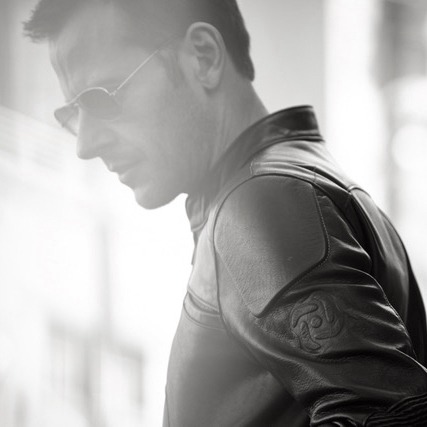

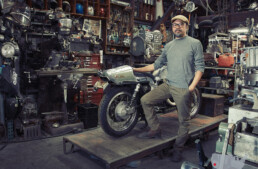
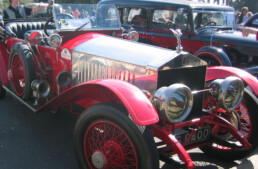
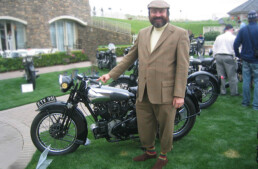
Hmmm … I dunno … J Shia first came to my attention on the EBayMotors commercial she’s featured in ;
( kind of a contradiction … an independent business women shilling for the BORG of retail who’s sole purpose is the destruction of independent retail business … oh the sins we commit for the sake of an almighty dollar )
Can’t say I find her customs either unique or distinctive (more like a fairy well done pastiche of who ever depending on which bike is being discussed )
e.g You know the old saying that ;
Beginners copy
Talent borrows
Genius steals
I’d say J. Shia at present is smack dab in between beginner and talent
But in reality of how hard it is to survive as a restorer / custom bike builder … never mind as a female restorer / custom bike builder…. ( InstaFamous/InstaBroke to quote PdL being the reality for the majority )
Full kudos to her . Now if she can come to her senses as to who she shills for … as well as finds her own distinctive style some day as well .
Here’s hoping
😎
As far as the ‘ bricolage ‘ approach is concerned .
Shinya Kimura is the undisputed master
One of my favorite Shinya tales was right after I’d purchased it from MoonEyes ..showing the ” Zero Chopper Spirit ” book to friend and all time hot rod legend Neal East ( yeah … THAT Neal East ) watching him go page by page identifying this classic automotive part or that ( as in thats a 32 Ford exhaust manifold .. that came off a 1920’s Dodge etc ) that Shinya in his Genius had incorporated into his multiple customs and race bikes featured thru out the book
Now that … is ‘bricolage ‘ .. at its utmost finest
Sorry, but I assume that you don’t know what you’re talking about.
When it comes to motorcycle design, J Shia is one of the most innovative persons out there and by no means a beginner. She is well known for individual creations like “The Devil’s Advocate” (https://pipeburn.com/1957-indian-bobber/) or “The Manipulated” (https://rocket-garage.blogspot.com/2017/07/the-manipulated-madhouse-motors.html). She is a truely motorcycle mechanic and on top of that she creates bikes that are consideres as artworks.
Otherwise, regarding the EbayMotors commercial and the “destruction of independent retail business” through these global player cutthroats, I totally agree with you.
I don’t get why people are doing this. There are other ways to earn money, especially if one is as talented as J Shia. Independant entrepreneurs should not support Ebay, PayPal, Amazon and the like (infact nobody should) …